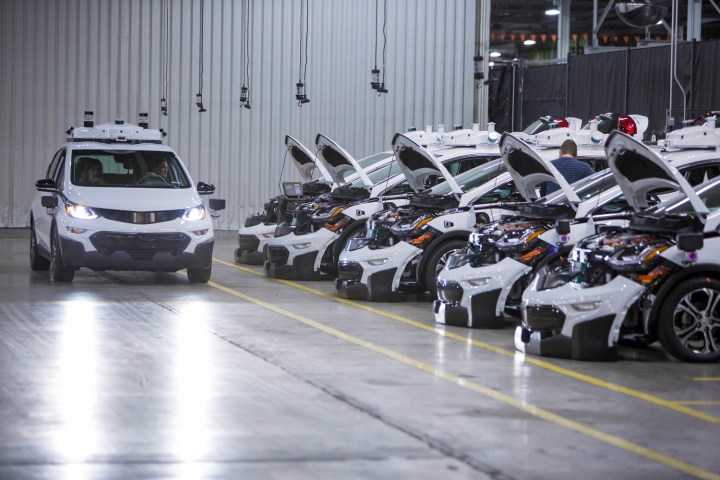
The automaker claims to have built 130 autonomous Bolt EVs at its factory in Orion Township, Michigan, since January. They join 50 Bolt EVs already in Cruise Automation’s fleet. GM claims to be the first automaker to build self-driving cars using the same assembly-line methods as regular vehicles, although the Bolt EVs are prototypes built solely for testing.
The 130 cars built in Michigan are considered next-generation prototypes, with various improvements over the 50 cars already in use. Cruise Automation began testing cars on public roads in San Francisco and Scottsdale, Arizona, last year, and brought them to Warren, Michigan, home of the GM Tech Center, in January.
This production run gives GM one of the largest fleets of autonomous cars on the road. Ford, which plans to launch an autonomous production car by 2021, expects to have 90 test cars in service by the end of this year. Chrysler is in the process of delivering 100 Pacifica Hybrid minivans to Waymo to be outfitted with autonomous tech. The former Google self-driving car project recently order 500 more, as it looks to phase out its home-built prototypes.
The expansion of the Bolt EV fleet coincides with increased GM investment in Cruise Automation. In April, GM announced plans to invest $14 million in a new facility for the autonomous-car division in San Francisco, and the division will also benefit from an $8 million California government tax credit. GM also plans to add 1,100 news jobs at Cruise Automation over five years.
While GM hasn’t offered many details about its long-term plans for self-driving cars, they likely include ridesharing. GM invested $500 million in Lyft last year, and it has been among the most aggressive of the major automakers in launching mobility services. Its Maven mobility division currently offers car-sharing services in multiple U.S. cities, as well as low-cost car rentals to Lyft and Uber drivers.


